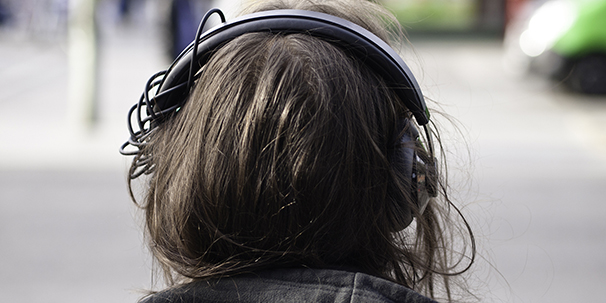Listening to music? Your brain activity is probably on beat
Certain brain patterns have been found to activate while listening to music.
November 4, 2015
Music has powerful effects on mood and information retention of human brains. Now, groundbreaking research by NYU researchers Keith Doelling and David Poeppel suggests that our brains are even more active in listening to music than we might have previously thought.
The study of Doelling, a PhD student with the Department of Psychology, and Poeppel, a professor at the Center for Neural Science, which was published in the Proceedings of the National Academy of Sciences, explains their discovery that brain activity synchronizes to the rhythm of the music being listened to. Further, the subjects of the study that had received greater musical training were found to have a better synchronization to the music than those with less musical training. Researchers noted a correlation between practice and our ability to process music.
Doelling said these findings may point to a greater correlation between identifying pitch and rhythmic brain patterns.
“[The research] suggests synchronization actually gives you a perceptual benefit and aids in the processing of musical sound,” Doelling said.
CAS freshman Sebastian Brunner-Stolovitzky took particular interest in the study. As a student of both music theory and piano of eight years, he said the discoveries seem logical based on his own experiences.
“A big part of music theory is listening to music, writing down what you hear, and analyzing it, which relates to their study,” Brunner-Stolovitzky said. “For me, I’ve gotten better at dictating notes over the time I’ve studied music theory. I didn’t start off well, but during AP Music Theory we did it everyday for months, so I got the hang of it.”
Brunner-Stolovitzy’s statements ring true with the study’s claims that there is a positive correlation between an ability to mentally synchronize with a rhythm and time spent working closely with music.
“In musicians, the more training they had received the better they were able to synchronize,” Doelling said.
Doelling said further research lies in why a temporal process such as listening to music would have any correlation to the processing of content. He hypothesizes that the answer to this question lies in the brain’s ability to tune into certain sounds to identify them.
“If you tune into the rhythm of music, or the syllabic rhythm of speech, it helps you to focus on that sound rather than noise in the background, like a truck going by or like cocktail party background chatter,” Doelling said.
CAS freshman Julia Matthews, a student on the pre-medical track, said she found the study to be applicable to her own life as well, especially in ways that synchronization to music can even distract her from other tasks.
“If your brain is working on synchronizing to the rhythm of the music, as opposed to the neurological processes of reading and interpreting, then your focus is divided,” Matthews said. “For example, earlier today I was trying to do biology homework while listening to music, and I just felt like I couldn’t because my brain was on a different rhythm. That makes sense with the recent breakthrough.”
For the future, Doelling and Poeppel’s research has the potential be very influential in the scientific world. Matthews believes their work could potentially alter the way that we utilize time, and combine different types of sensory stimulation — particularly in an educational setting.
“The more we learn about cognition and the more we are aware of the way we think, the more we can be privy to how to utilize that,” Matthews said.
Email Raven Quesenberry at [email protected].
CORRECTION: A previous version of this article incorrectly referred to Mr. Poeppel as a graduate student.



























































































































































